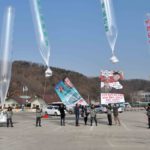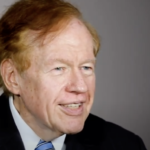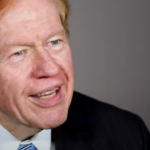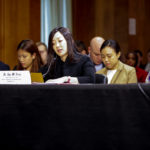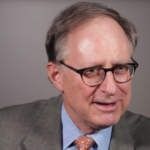February 15, 2024—
In this episode, Dr. Victor Cha is joined by Dr. Sung-han Kim, Former ROK National Security Advisor and Professor at the Graduate School of International Studies at Korea University, to discuss North Korea's current situation and recent developments as well as what to expect from North Korea in 2024.
January 31, 2024—
In this episode, Dr. Ellen Kim is joined by Dr. Victor Cha to discuss the Korea Chair's latest publication, Slow Boil: What to Expect from the DPRK in 2024, the likelihood of increased North Korean belligerence in 2024 and how it ties to the upcoming U.S. election.
January 16, 2024—
In this episode, Dr. Victor Cha is joined by Dr. James Brady to discuss the recent earthquake, the political fundraising scandal, and speculation regarding Japan-DPRK relations in 2024... In this episode, Dr. Victor Cha is joined by Dr. James Brady to discuss the…
September 6, 2023, by Victor Cha and Ellen Kim—
The White House’s acknowledgement this…
December 22, 2020, by Robert King—
The South Korean National Assembly last week approved legislation that imposes stiff fines and jail terms for sending leaflets, USB sticks, Bible verses, and even money across the 38th parallel into North Korea via balloons. The real risk for the Moon government is that by responding so quickly to the derisive dressing down from Kim Yo-jong, it may give Seoul the appearance of being overly eager to accede to Pyongyang’s demands. Such a response weakens South Korea’s ability to negotiate with the North. The quick capitulation by the South only encourages Pyongyang to take a tougher stance in the future.
May 18, 2020—
In this episode, Ambassador King shares how he became the first (and only) U.S. Special Envoy for North Korean human rights issues under the Obama administration. He recalls how he used his unique position to coordinate efforts with U.S. and foreign government agencies, as well as with non-governmental organizations, to advance North Korea’s human rights. In this interview, Ambassador King also recounts his experiences going to North Korea to intercede in U.S.-North Korean affairs and shares one of his most memorable experiences as special envoy.
May 14, 2020, by Sue Mi Terry—
After having gone missing for twenty days, Kim Jong-un reappeared on May 1, 2020 at a ribbon-cutting ceremony at a new fertilizer production facility in Sunchon. What fueled much speculation about Kim’s ill-health, and rumors of his death, for the past three weeks was the fact that he has missed several important public events, including his grandfather’s birthday commemoration on April 15th, which was highly unusual and unprecedented for Kim.
April 13, 2020—
This episode of Living History features part one of two interviews with Robert R. “Bob” King to mark the sixth anniversary of the UN Commission of Inquiry (COI) report on human rights in North Korea. Ambassador King served as special envoy for North Korea human rights issues from 2009 – 2017, leading efforts to advance human rights and humanitarian conditions in North Korea, secure the release of U.S. citizens held in North Korea, and represent the United States in international organizations dealing with these issues.
February 26, 2020, by Sue Mi Terry—
We are currently at an impasse with North Korea and we are facing dim prospects for the resumption of negotiations. But the chance of resuming negotiations is not zero. The United States can restart negotiations if we are willing to offer maximum sanctions relief in return for something less than the “denuclearization” of North Korea. Dr. Terry testified before the U.S. Senate Foreign Relations Subcommittee on East Asia, the Pacific and International Cybersecurity Policy on the state of North Korea policy one year after the U.S.-North Korea summit in Hanoi.
January 31, 2020—
Ambassador Vershbow reflects on his time as the U.S. ambassador to South Korea and the various diplomatic methods he used to negotiate key policies and establish rapport with ROK citizens. .. This Living History interview features an interview with Alexander “Sandy” Vershbow, the former U.S. ambassador to South…





